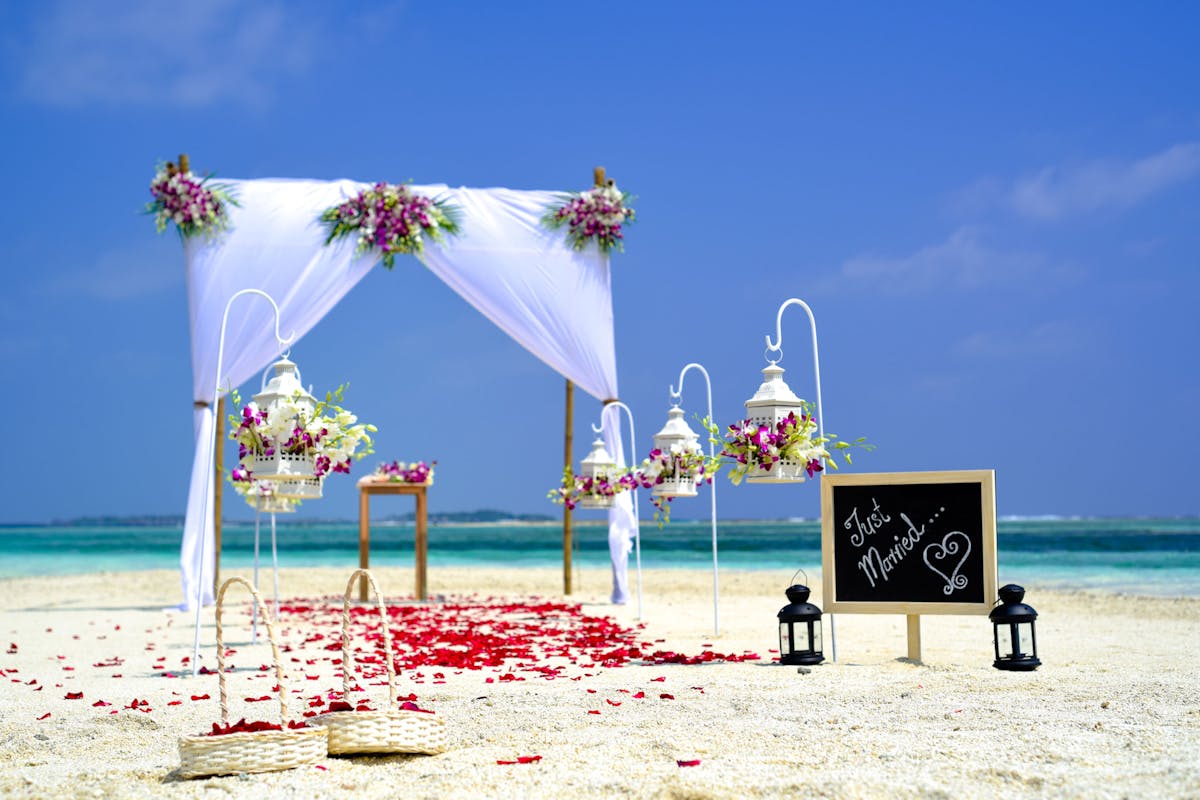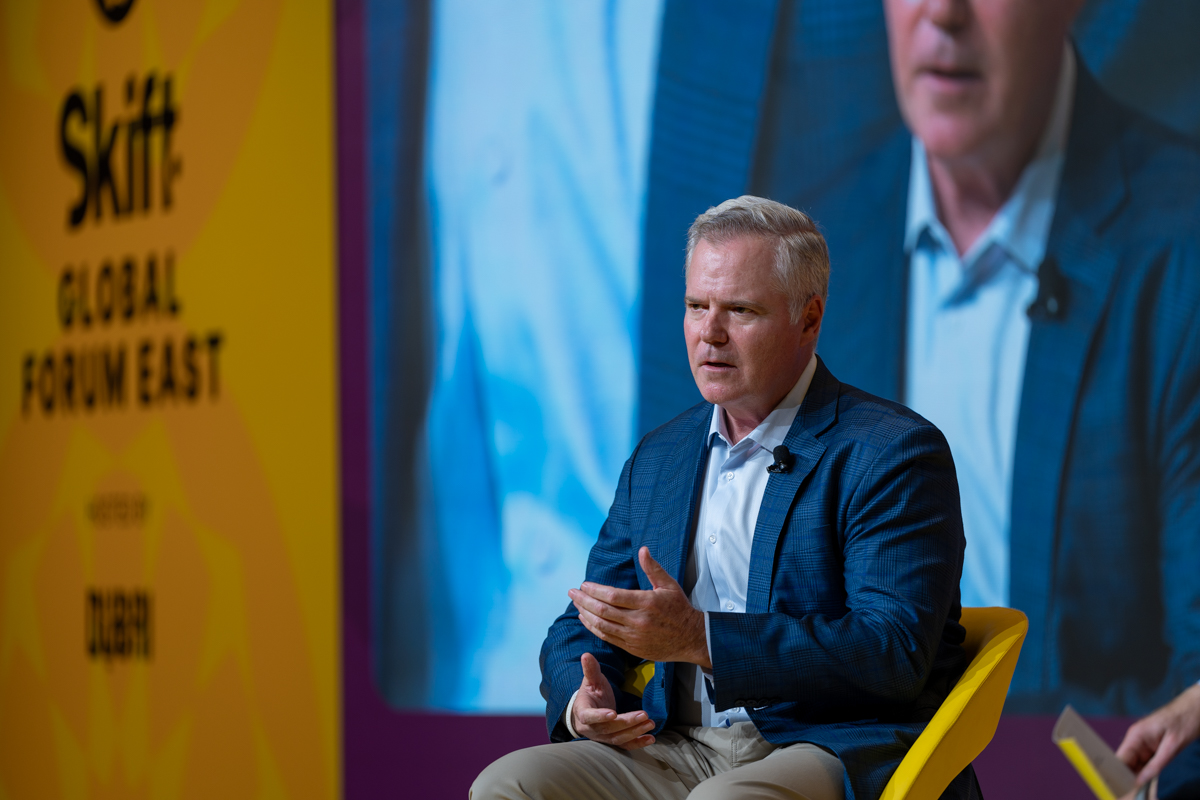India’s Surge in Destination Weddings – India Report

Skift Take
Over 80% of Indians have either had or are planning a destination wedding, a survey conducted by search aggregator Skyscanner showed. This preference is strongest among Gen Z, with about 50% of that group indicating that they are considering a destination wedding. This figure is 33% among Millennials.
Anam Zubair, Director Consumer Marketing, WeddingWire India, said, “The concept of planning a destination wedding in India is growing in popularity, with nearly a 13% increase year-over-year in the number of couples who are opting for destination weddings.”
According to the Skyscanner survey, which involved 2,000 respondents from India, there is an increased interest in holding pre-wedding festivities with their friends and family, especially in the aftermath of the Ambani wedding extravaganza. Indians are opting for weekend getaways, cruise parties, Italian-style gatherings, and concerts and events to celebrate.
Locations such as Goa, Dubai, Bali, and Bangkok emerged as preferred locations in the survey, along with the UK, Spain, France, and Italy.
Here are some of the trends that the survey revealed:
- Beaches and royal palace weddings are the most popular destination wedding themes among Indians.
- About 45% of the couples in India are willing to increase their budgets by 50% to make their wedding destinations a unique adventurous experience.
- There is also an increase in couples looking for unexplored destinations like Gokarna, Mahabalipuram, and Kukas to avoid usual wedding hotspots such as Goa and Shimla.
Despite couples willing to increase their budget for destination weddings, they are still careful with their spending. Mohit Joshi, Skyscanner Travel Trends and Destination Expert, said, “The survey shows that for 41% of respondents in India, prioritizing cost when picking destination wedding venues is key.” Hence, they start planning their weddings a year in advance to organize all the details, with 40% of the respondents relying on wedding planners to get guidance.
Big Fat Indian Weddings: Indian weddings are an extravagant affair. In a Skift feature earlier this year, my colleague Peden Doma Bhutia reported that the 2023-24 wedding season in India generated an estimated revenue of $75 billion.
A survey by the Confederation of All India Traders revealed that between November 23 and December 15, 2023, about 3.5 million couples tied the knot in India leading to spending that totaled around INR 4.25 trillion ($57 billion).
A typical Indian wedding at an international destination costs about $215,000, according to Skift Research estimates. And in 2024, destination weddings are projected to account for 21% of the total weddings
According to Skift Research’s survey, Indian destination weddings account for $1.9 billion (INR 159.6 billion) in outbound travel spending. To capitalize on this market, India is actively promoting itself as the next big wedding destination: Wed in India. According to Prime Minister Narendra Modi, who called for Indians to host weddings in their families in India itself, having destination weddings within India would help boost the economy.
Visa Applications Surpass Pre-Pandemic Volumes
Visa applications by Indian travelers in the first six months of 2024 have surpassed the pre-pandemic levels, visa services company VFS Global shared on Monday. The number of applications also grew 11% from 2023.
Yummi Talwar, Chief Operating Officer for South Asia, VFS Global, said, “Outbound travel demand from India has remained robust. India has been witnessing an extended travel season over the past two years and we are confident the momentum will last till the year-end.”
VFS manages the visa application processes for 51 countries in India. Among the countries that saw the most visa applications are the U.S., UK, China, Canada, France, Germany, Japan, Italy, Switzerland, and Saudi Arabia.
Moxy Hotels Debuts in Mumbai
Marriott International’s Moxy Hotels brand has debuted in Mumbai with the opening of Moxy Mumbai Andheri West. The 105-key property is the second Moxy hotel operational in India, following the opening of Moxy Bengaluru Airport Prestige Tech Club in January this year. Moxy Mumbai had originally been scheduled to open in April.
Marriott has plans to open a 125-room Moxy property in Chennai and a second one in Bengaluru with 200 rooms by early next year.
In an earlier interview with Skift’s Asia Editor Peden Doma Bhutia, Rajeev Menon, Marriott’s president, Asia Pacific excluding China, said that India is one of the most important markets for the hotel chain in Asia. The country has the second-highest number of hotels and rooms in the region, after China.
To continue its growth, Marriott is expanding its luxury portfolio: the third and fourth Ritz-Carlton in India are under development in Shimla and Jaipur, respectively. The company is also expanding in the mid-scale segment due to rising consumer demand for reliable and affordable accommodations in top cities and tertiary markets throughout India, Menon had said.
Indians Returning to Thailand, Vietnam for Repeat Visits
Over 65% of Indian travelers prefer returning to their favorite destinations, travel company Agoda has revealed. The survey showed that Thailand, Vietnam, and Indonesia were leading destinations where Indians went for repeat visits, followed by Singapore and France.
Nearly 60% of the repeat travelers visited their favorite destinations between one to three times over the past decade. Agoda also revealed that there have been travelers who made repeat trips 10 times or more.
Surveyed Indian travelers indicated local cuisine, ease of travel, and affordability as their reason to visit their favorite destinations again.
Air India Introduces 7 Languages to Customer Support
Full-service airline Air India has introduced seven new languages to its customer support services. The new languages are Bengali, Kannada, Malayalam, Marathi, Punjabi, Tamil, and Telugu. Prior to this, the support was available only in English and Hindi.
The move aims to provide accessibility to passengers who prefer to communicate in their native language.
Additionally, the airline’s Interactive voice response or IVR system will automatically recognize a customer’s language preference based on their mobile network to eliminate the need for manual selection.





